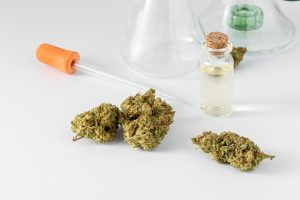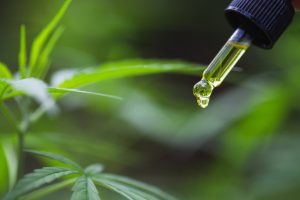CBD has emerged as one of the most popular health supplements in recent years. However, despite its widespread use, there remains a considerable amount of misinformation circulating regarding CBD and hemp-derived products in general. One prevalent misconception is the belief that CBD induces a feeling of being high. It’s important to clarify upfront: CBD does not produce a psychoactive effect. Nevertheless, it’s beneficial to delve into the topic of CBD, including considerations such as THC levels in CBD oil products, and develop a deeper understanding of terms like cannabis, marijuana, and hemp. Now, let’s delve directly into the primary cannabinoid under discussion: CBD.
Understanding CBD
CBD, short for cannabidiol, constitutes one among numerous chemical components present in the cannabis plant, known as cannabinoids. Alongside CBD, there exist other cannabinoids such as CBN, CBG, CBC, and notably, THC. These compounds function to safeguard the cannabis plant from threats like insect pests, herbivores, and adverse weather conditions, while also attracting pollinators.
CBD and THC, specifically delta-9 THC, stand out as the primary cannabinoids, indicating a higher prevalence of CBD and THC in both hemp and marijuana compared to other cannabinoids. However, nearly all of these hundred-plus compounds exert varying effects on users due to their interaction with one of the body’s essential systems.
The Endocannabinoid System (ECS): The endocannabinoid system (ECS), present in all animals, serves as a cell-signaling system. Within this system, the body produces its own cannabinoids, termed endocannabinoids, which communicate through cannabinoid receptors dispersed throughout various systems and organs, aiding in the maintenance of homeostasis, or balance. This regulatory function extends to crucial bodily processes such as appetite, sleep, mood, memory, pain perception, stress response, motor control, and more.
Upon ingestion, CBD and other cannabinoids interact with these receptors similarly to the body’s endocannabinoids. By doing so, CBD supports the ECS, facilitating the maintenance of equilibrium. This aspect underpins CBD’s rising popularity as a health and wellness supplement.
Does CBD Cause Intoxication?
Despite delivering various health benefits through its interaction with the ECS, CBD does not induce a psychoactive high. References to CBD’s calming effects typically pertain to its ability to promote relaxation and stress relief, distinct from the euphoric sensation associated with intoxication.
What About THC?
Cannabidiol (CBD) does not trigger the intoxicating effects commonly associated with THC, the primary psychoactive cannabinoid found in marijuana. It’s essential to differentiate between marijuana and hemp, with the former containing high levels of THC and the latter high levels of CBD but trace amounts of THC (below 0.3% THC, as mandated by law).
Now, let’s focus on delta-9 THC, the principal psychoactive component of cannabis. In sufficient quantities, delta-9 THC elicits psychotropic effects characterized by euphoria and mood enhancement, commonly referred to as getting high.
While the 2018 Farm Bill legalized CBD products derived from hemp, provided they contain less than 0.3% THC (measured by dry weight), it’s crucial to acknowledge potential variations in THC content among these products.
Understanding CBD Oil Varieties: Full Spectrum CBD vs. Broad Spectrum CBD vs. CBD Isolate CBD products may contain three main types of CBD oils. Full spectrum CBD encompasses the original hemp plant extract, retaining all cannabinoids (including CBD and legal traces of THC), terpenes, flavonoids, and beneficial fatty acids.
Broad spectrum CBD is a similar extract; however, it undergoes filtration to remove detectable THC levels, along with some other hemp compounds. Both full spectrum and broad spectrum CBD oils can produce the Entourage Effect, wherein CBD, THC, and other hemp compounds synergistically enhance each other’s effects, offering a comprehensive cannabinoid experience.
In contrast, CBD isolate consists solely of CBD, with all other cannabis constituents removed. CBD isolate typically exists in the form of a 99% pure CBD powder rather than an oil.
It’s noteworthy that we offer a range of delta-9 THC products, comprising full spectrum CBD with added THC to approach the legal limit. While compliant with regulations, these products may still induce psychoactive effects associated with THC, albeit at lower concentrations.
Whether utilizing traditional full spectrum CBD products or delta-9 THC products, caution should be exercised regarding potential effects. Refrain from operating heavy machinery or driving when using these products.
Additionally, for marijuana-derived CBD products, anticipate elevated THC levels and remain mindful of potential intoxicating effects.
In conclusion, it’s essential to remember that CBD won’t make you feel high. However, it’s crucial to check the THC levels in any CBD product made from cannabis. Candy Cloud’s CBD gummies do not carry any intoxicating properties. We hope this article has helped you learn more about CBD, THC, and the different types of CBD products. Good luck on your CBD journey!






